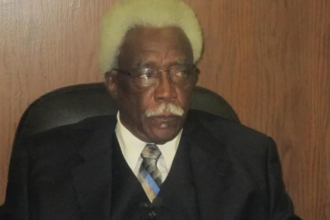The Israeli military continued to bombard Gaza on Tuesday, determined to carry out its proclaimed objective of eliminating the Palestinian terrorist group Hamas despite mounting demands for a cease-fire and the United States asking Israel to “put a premium on human life.”
Israel maintains that it is solely targeting terrorists and terror equipment, but pressure on Israel to stop the bombing was growing as Gaza’s Hamas-run Health Ministry reported that the conflict has killed more than 18,000 Palestinians. The conflict was triggered by Hamas’ extraordinary Oct. 7 offensive on southern Israel, which has long been recognized as a terrorist group by the United States, Israel, and many other countries.
According to Israel’s military, around 1,200 Palestinians were murdered during Hamas’ initial offensive, and more than 100 soldiers have been killed in Gaza since then. According to an Israeli Defense Forces spokeswoman, 105 servicemen have been killed since the commencement of military operations in Gaza, including 13 killed in friendly fire incidents.
According to hospital records, an Israeli bombardment killed at least 23 people overnight in the city of Rafah, close on Gaza’s southern border with Egypt – a location where Israel had encouraged residents to take refuge.
Marwan al-Ghoul, a CBS News producer, was fortunate to survive another hit in the neighborhood. He went to the site of a bombing that he said killed at least ten individuals not more than 500 yards from his house early Monday.
“These children are not Hamas”
The escalating number of deaths and injuries in Gaza has spurred global outrage, probably nowhere more so than in the other Palestinian region, the Israeli-occupied West Bank.
Protesters marched in Ramallah, West Bank, carrying a 40-foot banner with the names of Palestinians slain in Gaza. “We are not just numbers,” it said.
That warning, in English, was most certainly directed at the one nation in the area that people believe is capable of constraining Israel’s military.
“We are against the position of the United States of America when they use the veto two times against Palestinian people,” one rallygoer told CBS News.
The United States has obstructed the ratification of legally binding United Nations security resolutions calling for a fresh cease-fire, and both Washington and Israel believe that any break in hostilities would allow Hamas fighters to reorganize.
However, Palestinians and their sympathizers argue that those most affected by Israel’s ferocious onslaught in Gaza are not terrorists.
“These are not Hamas,” Lubna Kharouf, a West Bank municipal council representative, stated as she pointed to Palestinians protesting in Ramallah. “These are not Hamas children… And the people being shelled in Gaza are primarily women, civilians, and children – none of them are affiliated with Hamas.”
Tedros Adhanom Ghebreyesus, the chief of the World Health Organization, warned Tuesday that extended Israeli checks and “detention of health workers” were putting “lives of already fragile patients at risk” in Gaza.
“In just 66 days, the health system [in Gaza] has gone from 36 functional hospitals to 11 partially functional hospitals — one in the north and ten in the south,” the WHO’s representative in the Palestinian territories, Richard Peeperkorn, told Reuters during a briefing on Tuesday.
Demands humanitarian assistance and a “premium on civilian life”
Israel’s military blocking the territory’s borders has been one of the main causes of the severe humanitarian situation in Gaza since Oct. 7. For years, Gaza has relied on hundreds of trucks crossing daily from Egypt and Israel delivering goods ranging from medication to food and fuel. Only one border crossing, the Rafah crossing with Egypt, has been reopened, but relief groups claim the flow of goods via it has been minimal in compared to the demands of Gaza’s 2.3 million residents.
Hours after U.N. aid agency officials renewed their call for Israel to open the Kerem Shalom crossing into Gaza on Monday in order to increase the flow of aid into the besieged enclave, Israeli authorities indicated that the country’s border checkpoint there would be opened, but only to add “security screening” capacity, not to allow additional trucks to enter Gaza.
It was unclear how much more help the new screening would permit or accelerate, given that the items would still have to return to the Rafah gate to enter Gaza.
Meanwhile, US State Department spokesperson Nathaniel Tek echoed Secretary of State Antony Blinken’s remarks last week, telling BBC News on Tuesday that the Biden administration believes it is “critical that Israel places a premium on the protection of human life, as well as the ability of aid organizations to access civilians.”
“There is certainly more that can be done,” Tek added, adding that people should be given more exact and unambiguous directives to safeguard their safety. We feel that, while Israel’s aim is to protect civilians, the outcomes are equally important, and we are working with and pressuring the Israeli government to ensure that civilian life is prioritized.”
He emphasized that Hamas, which Israel and the United States accuse of employing Palestinians as human shields, had a responsibility to protect people as well, and that the group had “not shown any interest or inclination to do so.”
However, with both sides looking entrenched and no possibility of a fresh cease-fire in the immediate future, there was growing worry that the battle may move beyond Gaza.
The United States is “concerned” about accusations that Israel deployed white phosphorus in Lebanon.
According to White House National Security Council spokesperson John Kirby, the US is “concerned” about claims that Israel deployed US-supplied white phosphorus bombs in October operations in southern Lebanon, where the Hezbollah terrorist group is located.
“We’ve seen the reports — certainly concerned about that,” Kirby said, referring to a Washington Post piece.
“We’ll be asking questions to try to learn a little bit more,” Kirby said, adding that white phosphorus, a highly flammable substance that can burn through human bone, has a “legitimate military utility” for lighting and masking unit movements with smoke.
“Obviously, anytime that we provide items like white phosphorus to another military, it is with a full expectation that it will be used in keeping with those legitimate purposes and in keeping with the law of armed conflict.”
Hezbollah, a major regional organization supported by Iran, has repeatedly threatened that if called upon, it will join Hamas in the conflict with Israel. Hezbollah fighters in southern Lebanon have already exchanged fire with Israeli forces across the country’s northern border.
Kirby emphasized Monday that the White House does not want a second front to form in the fight.
“We absolutely don’t want to see this conflict spill over into Lebanon,” he told reporters. “So it is also in the context of that we’re concerned about these reports.”
The Houthis have attacked a European oil ship near Yemen.
Yemen’s Iran-backed Houthi rebel movement announced Monday that it has assaulted a Norwegian-flagged oil ship off the country’s coast, calling it the latest military operation in response to Israel’s bombing of Gaza.
The USS Mason, according to the US military’s Central Command (CENTCOM), “responded to the M/T STRINDA’s mayday call” following what seemed to be an anti-ship cruise missile hit. The Strinda “reported damage causing a fire on-board, but no casualties at this time,” according to CENTCOM, and the Mason gave unspecified assistance.
The Houthis, a formidable combat group that conquered more than half of Yemen in 2014, sparking a civil war that is still ongoing today, have launched a barrage of missiles and drones in Yemen.
Meanwhile, a French navy ship is said to have destroyed a Houthi drone that was threatening the same Norwegian tanker.















